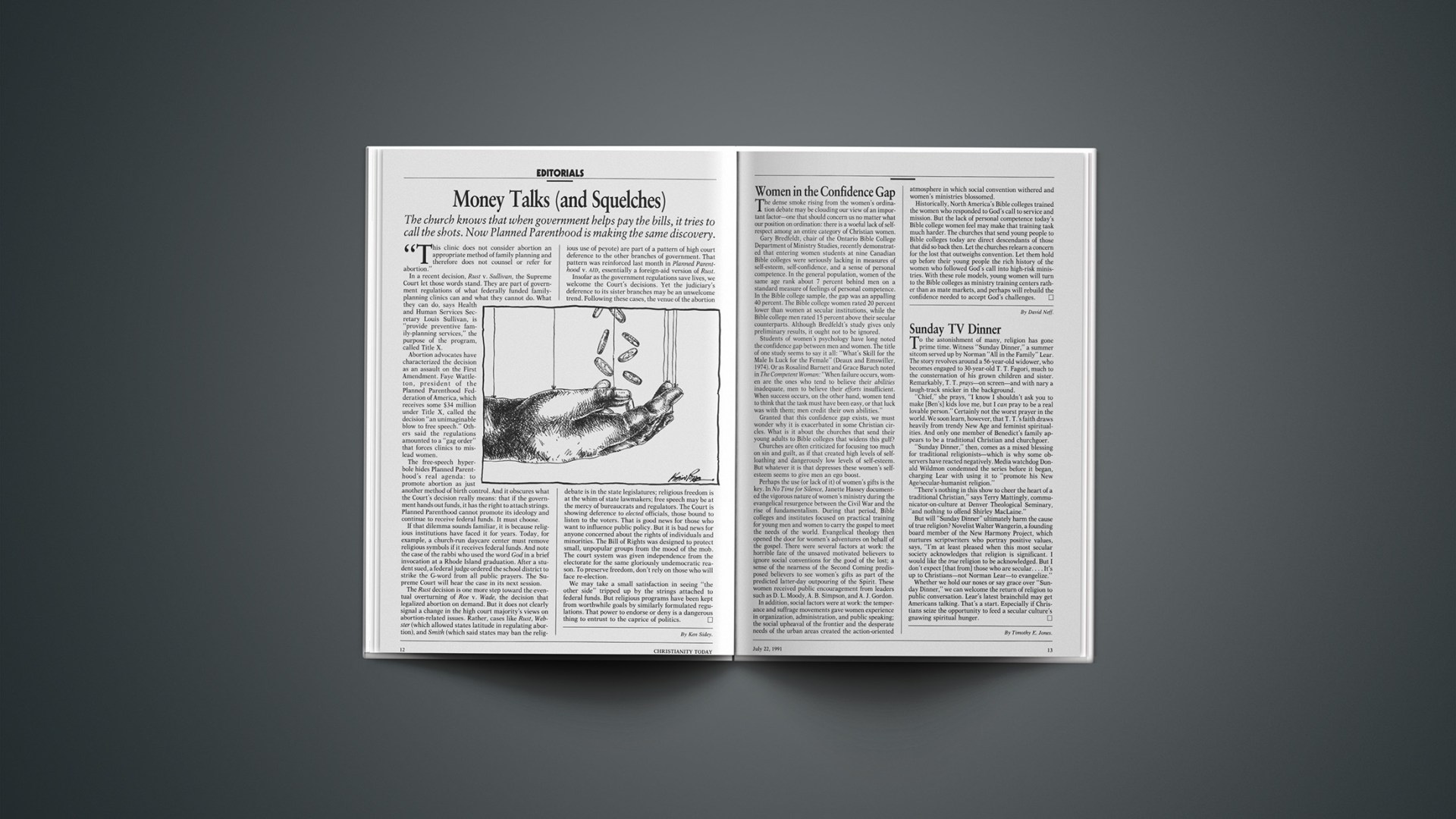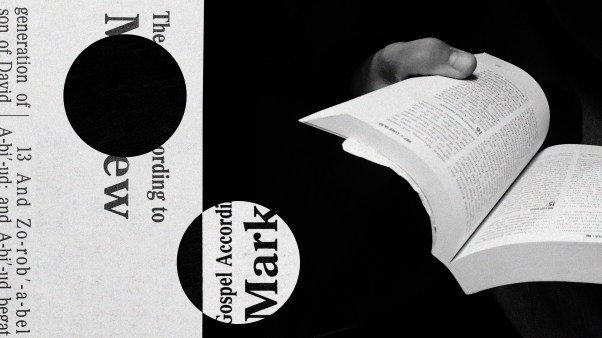To the astonishment of many, religion has gone prime time. Witness “Sunday Dinner,” a summer sitcom served up by Norman “All in the Family” Lear. The story revolves around a 56-year-old widower, who becomes engaged to 30-year-old T. T. Fagori, much to the consternation of his grown children and sister. Remarkably, T. T. prays—on screen—and with nary a laugh-track snicker in the background.
“Chief,” she prays, “I know I shouldn’t ask you to make [Ben’s] kids love me, but I can pray to be a real lovable person.” Certainly not the worst prayer in the world. We soon learn, however, that T. T.’s faith draws heavily from trendy New Age and feminist spiritualities. And only one member of Benedict’s family appears to be a traditional Christian and churchgoer.
“Sunday Dinner,” then, comes as a mixed blessing for traditional religionists—which is why some observers have reacted negatively. Media watchdog Donald Wildmon condemned the series before it began, charging Lear with using it to “promote his New Age/secular-humanist religion.”
“There’s nothing in this show to cheer the heart of a traditional Christian,” says Terry Mattingly, communicator-on-culture at Denver Theological Seminary, “and nothing to offend Shirley MacLaine.”
But will “Sunday Dinner” ultimately harm the cause of true religion? Novelist Walter Wangerin, a founding board member of the New Harmony Project, which nurtures scriptwriters who portray positive values, says, “I’m at least pleased when this most secular society acknowledges that religion is significant. I would like the true religion to be acknowledged. But I don’t expect [that from] those who are secular.… It’s up to Christians—not Norman Lear—to evangelize.”
Whether we hold our noses or say grace over “Sunday Dinner,” we can welcome the return of religion to public conversation. Lear’s latest brainchild may get Americans talking. That’s a start. Especially if Christians seize the opportunity to feed a secular culture’s gnawing spiritual hunger.
By Timothy K. Jones.










